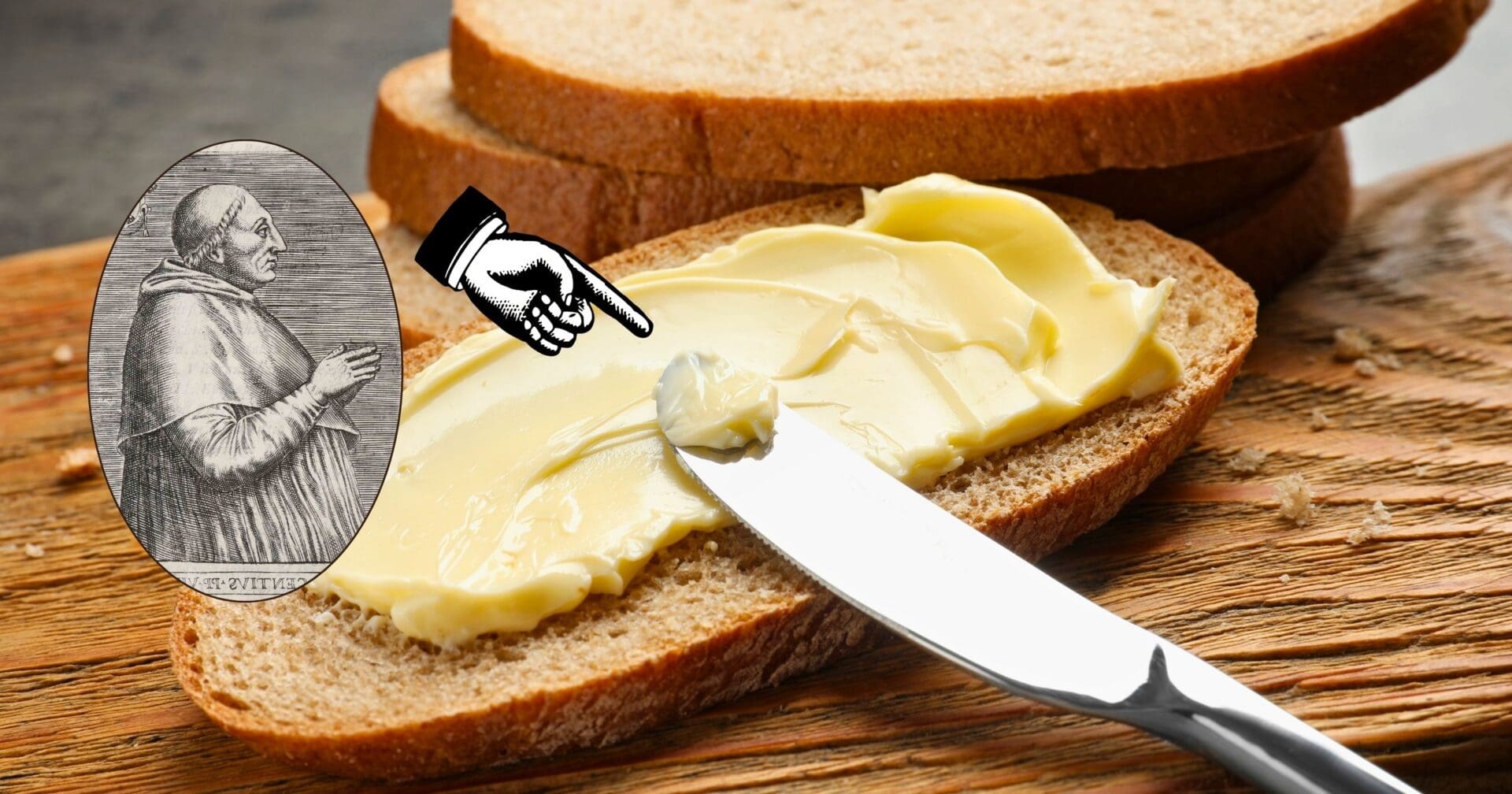One of the time-honored traditions of German Christmas celebrations is savoring a slice of Stollen, a delectable fruit bread rich in nuts, spices, and dried fruits. However, what many might not know is the intriguing history involving Catholic popes and this bread’s crucial ingredient: butter!
Originally, Stollen was quite a bland affair.
Baked primarily with flour, oats, and water, it was a far cry from the flavorful delicacy we know today. Come the Advent season, a period traditionally marked by fasting, bakers had their hands tied. They weren’t allowed to use butter, a key ingredient in making the bread rich and palatable. Instead, they were restricted to oil, which in medieval Saxony was not only pricey but also rare and often derived from turnips.
Faced with this challenge, the Prince Elector Ernst and his brother, Duke Albrecht, took a step that seems bold even today: they wrote to the Pope. Their plea? Allow the use of butter in Stollen.
The first appeal made to Pope Nicholas V in 1450, was denied. But as they say, persistence pays. It took five successive popes and a span of 40 years until finally, in 1490, Pope Innocent VIII sent what came to be famously known as the “Butter-Letter”.
In it, he granted permission for the Prince-Elector and his family to use butter in their Stollen without any penalty. As for the others, they too could enjoy the luxury of butter but at a price – they had to contribute towards the construction of the Freiberg Minster.
Interestingly, Pope Innocent VIII’s butter restriction was finally dissolved when Saxony adopted Protestantism.
Today, if you ever happen to enjoy Stollen, it’s amusing to think of the long road this bread has traveled – and the Papal decree that made it all possible!














